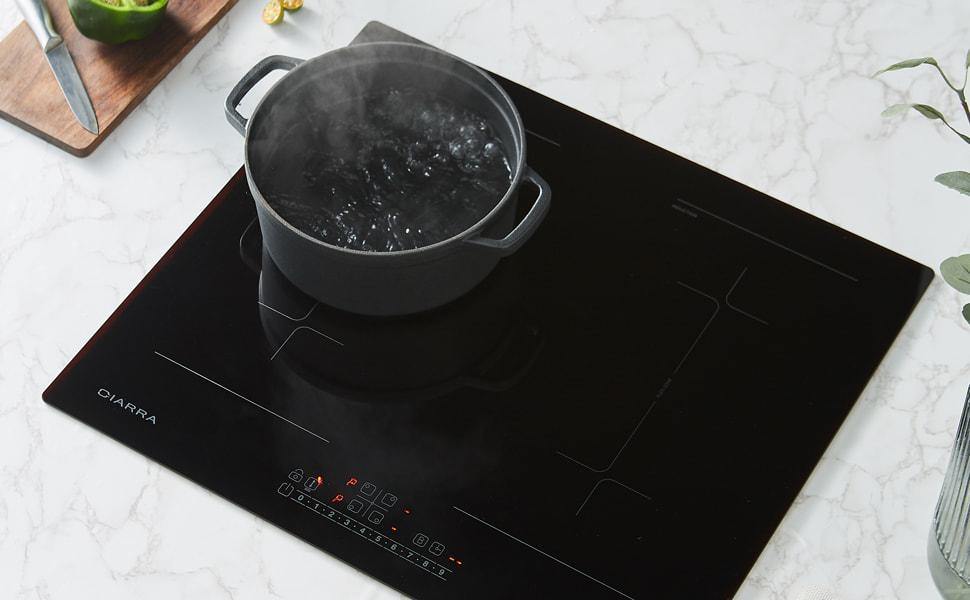Can Cast Iron Damage Induction Cooktops? Find Out Now!
Written By James Morgan
For barbecue enthusiasts who thrive on the thrill of the grill, the idea of combining cast iron cookware with modern cooking innovations is both exciting and a bit daunting. With the rise of induction cooktops, many are left wondering, can cast iron damage induction cooktops? In this article, we will dive deep into this topic, unraveling the mysteries behind these two beloved kitchen staples.

The Appeal of Cast Iron for Barbecue Lovers
Cast iron cookware has long been revered by cooking aficionados, especially those who cherish the art of barbecue. Its ability to retain and evenly distribute heat makes it ideal for searing meats and grilling vegetables to perfection. Moreover, the seasoned surface of cast iron cookware adds a unique flavor profile that many barbecue enthusiasts crave.
However, with the advent of new cooking technologies like induction cooktops, there is a growing concern about whether using cast iron on these surfaces can lead to damage. Lodge Cast Iron suggests that using cast iron on any heat source, including induction, is generally safe when done correctly.
Understanding Induction Cooktops
Before addressing the potential for damage, it's crucial to understand how induction cooktops work. Unlike traditional gas or electric stoves, induction cooktops use electromagnetic fields to directly heat the cookware. This means that the cooktop surface itself remains relatively cool, reducing the risk of burns and energy wastage.
For induction cooktops to work effectively, the cookware must be made of a ferrous material, such as cast iron or stainless steel, which can attract magnetic fields. This is why cast iron is often recommended for induction cooking. However, concerns arise when considering the weight and roughness of cast iron, which could potentially scratch or damage the smooth glass surface of induction cooktops.
Can Cast Iron Damage Induction Cooktops?
The short answer is: yes, it can, but with caveats. Cast iron, being heavy and often rough on the bottom, can scratch the glass surface of induction cooktops if not handled carefully. The key is to ensure that the cookware is lifted rather than dragged across the cooktop. Additionally, Field Company highlights that using a paper towel or silicone mat can help protect the surface while cooking.
It's also important to be cautious about temperature changes. Placing a hot cast iron pan directly onto a cold cooktop, or vice versa, can cause thermal shock, potentially cracking the glass. Ensuring that the cooktop and cookware are both at room temperature before use can mitigate this risk.
How to Safely Use Cast Iron on Induction Cooktops
For those who love barbecuing and are eager to use cast iron on their induction cooktops, here are a few tips to do so safely:
1. Lift, Dont Drag
Always lift your cast iron cookware when moving it on the cooktop. This simple practice can prevent scratches and preserve the condition of your cooktop.
2. Use a Protective Barrier
Consider placing a thin layer, like a paper towel or silicone pad, between the cookware and the cooktop to prevent direct contact that could lead to scratches or damage.
3. Mind the Temperature
Avoid exposing your cooktop to thermal shock by ensuring that both the cooktop and the cookware are at a similar temperature before starting to cook.
For more detailed guidance on using cast iron with induction, check out Le Creuset's official advice.
Conclusion
While cast iron can potentially damage induction cooktops if not used properly, with the right techniques and precautions, it is entirely possible to enjoy the best of both worlds. By treating your cookware and cooktop with care, you can continue to enjoy the rich flavors and perfect sears that only cast iron can provide. For more tips on using cast iron with induction, visit Searing Meat in Cast Iron.

FAQs
Can I use cast iron on any induction cooktop?
Yes, cast iron is suitable for use on induction cooktops as long as you handle it with care to avoid damaging the surface.
What precautions should I take when using cast iron on induction?
Some key precautions include lifting the cookware instead of dragging it, using a protective barrier, and avoiding rapid temperature changes.
Is cast iron the best choice for induction cooking?
Cast iron is an excellent choice for induction cooking due to its magnetic properties and heat retention. However, alternative materials like stainless steel are also effective and often lighter and easier to handle.



